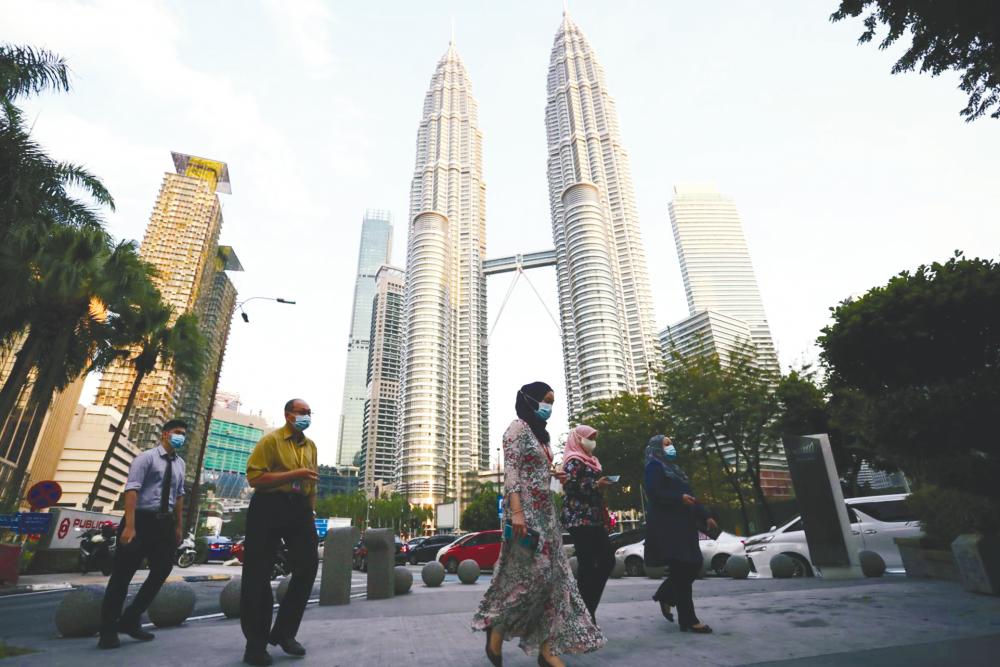PETALING JAYA: The World Bank has laid out the need for Malaysia to adopt and implement a series of economic reforms as it is at a critical position to make the transition into a high-income nation within four to eight years, according to its country manager, Firas Raad.
He said the government needs to embark on reforms relating to competitiveness, labour participation of women, investments, share of high skilled employment as well as fiscal capabilities, to prepare for that transition and sustain growth over the medium to long term.
Firas stated that there is a need for the country to embrace a new development model, as the existing model is not sufficient for it to cross into the high-income threshold with confidence.
“We have to move from a model relying on factor accumulation of capital labour – the growth for productivity and innovation and embrace of technology – that requires a whole series of reforms,” he said at launch of World Bank’s ‘Aiming High: Navigating the Next Stage of Malaysia’s Development’ report on Tuesday.
The report, which examines Malaysia’s journey to reach high-income threshold, found the country’s rate of growth slowing prematurely compared with its transitional peers – 19 countries which have achieved the status in the past 30 years.
It noted that compared with economies which have graduated from middle-income status, Malaysia has a lower share of employment at high-skill levels, higher levels of inequality, collects less in taxes and spends less on social protection.
Furthermore, the report highlighted that the country performs relatively poor in measures relating to environmental management and the control of corruption. Many of these fault lines have become exposed during the Covid-19 pandemic.
World Bank lead economist Richard Record said that to overcome these issues, the clear priority is to raise Malaysia’s potential rate of growth.
He said there are opportunities in investing in improving the quality of human capital, particularly by raising the rate of female labour force participation, as there is an enormous gap in Malaysia’s performance which holds back the economy from achieving full potential.
Record also observed that private sector companies operating in economic areas without a large government-linked company (GLC) presence or shielded from foreign competition are more competitive and more efficient.
“This doesn’t mean that the presence of GLCs is a problem per se but the way they are regulated becomes very important to ensure that the private sector is able to compete and maximise efficiency,” he said.
Over the long term, Record expects the country’s growth rate to inevitably slow down naturally, as growth is contingent on innovation which makes it difficult to expand at the previous rate.
He estimated Malaysia’s current growth of 4-6% to decline to 2-3% in the next 30 years, but with the right reforms the rate could be doubled.
When asked about policy continuity, which is required to carry out such reforms, Firas pointed out in the countries which had made the transition to high-income status, there are those with regular democratic life in which governments would come and go but policy continuity was pursued around certain anchors.
“In the Malaysian context, the 12th Malaysia Plan does provide that kind of mechanism, in which the government can lay out certain strategic directions and the reforms can be pursued by different policy makers,” said Firas.
Commenting on the report, Finance Minister Tengku Datuk Seri Zafrul Tengku Abdul Aziz said the government is committed to assessing the quality, inclusivity and sustainability of Malaysia’s growth.
“We have built good foundations but we also recognise the need to invest more in developing high-quality human capital to facilitate greater economic opportunities; next-generation reforms for higher productivity; as well as innovation-led private sector growth and policies,” he said in his official address in conjunction with the launch of the report.













